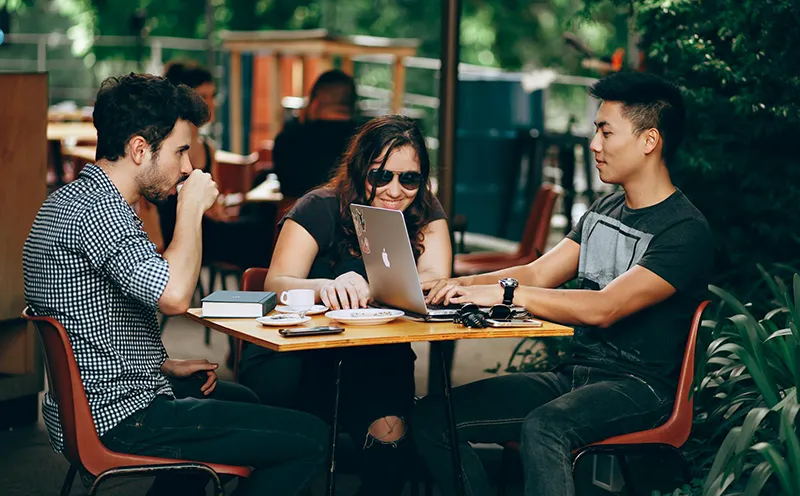1. Understand Korean expressions of interest
In Korea, it’s common to be asked personal information such as age, marital status, and place of residence at the outset. As a foreigner, this can feel like an invasion of personal privacy.
However, this is a cultural practice that stems from Koreans’ intention to express interest in the other person and get to know them. If you understand that it’s a process of trying to understand the other person and build intimacy, you can reduce the offense.
2. Korean expressions related to the weather
Korea has four distinct seasons, and each season has its own culture. In the summer, there’s a Korean phrase for beating the heat, “yiyeol chiyeol,” which means to eat hot food.
The phrase “yiyeol chiyeol” means “heat with heat,” and the underlying meaning is to meet force with force or strong with strong.
In Korean, people sometimes describe themselves as “cool” after eating hot food. This is not a physical coolness, but rather a refreshing and pleasant feeling, so foreigners should be careful not to get confused.
3. The meaning of “Let’s eat rice
Koreans often say “Let’s eat rice once” when parting ways. While this can actually mean a promise to eat, it’s usually a social idiom that expresses regret and friendliness. It’s best to understand it as a gesture of courtesy and closeness rather than a promise.
4. The meaning of “Have you eaten?
In Korea, the question “Have you eaten?” does not simply ask whether someone has eaten, but is a cultural idiom that asks how the other person is doing and expresses interest.
It’s a way of communicating that you care about the other person’s health and well-being. It’s a sign of intimacy and is used as a common greeting.
5. ‘No thanks’ as a way of saying no
One of the most common phrases foreigners hear when offered something in Korea is “It’s okay.” It should not be taken literally and is often used as a euphemism for refusal.
It’s one of the most indirect ways of communicating in Korea, where people don’t directly express their intentions, so it’s important to read between the lines.
6. Popular apps in Korea
The most popular messenger in Korea is KakaoTalk. KakaoTalk makes it easy to send messages, make voice and video calls, and utilize cute emoticons to make conversations more personal.
Some of the most popular apps in Korea include KakaoTalk, YouTube, Naver, and Coupang, and other apps such as maps, social media, and food delivery are also frequently used.
7. Interpretation and Counseling Services in Korea
If language barriers become an issue in your work or personal life in Korea, there are a variety of interpretation and counseling services available to help you.
The Foreign Workers’ Consultation Center (1577-0071) provides interpretation services in 16 languages for foreign workers, and telephone counseling is also available for daily communication issues and workplace conflict resolution.
The Korea Industrial Manpower Agency (1644-8000) also provides a variety of support for foreign workers, including on-site interpreter services at workplaces.
There are many services available to help foreign workers overcome cultural differences and language difficulties in Korea, so please take advantage of them when you need them.
8. Additional tips for adjusting to life in Korea
There are also some additional tips for expats to keep in mind as they go about their daily lives in Korea. For example, foreigners can open a bank account in Korea and use internet banking with an authorized certificate.
However, you will need a foreigner’s registration card to get a cell phone, and there may be restrictions on credit cards and loans, so be prepared.
In addition, to drive in Korea, you need to obtain an international driver’s license or pass a driving test in Korea, and Korea’s license issuance process is also available for foreigners.
Based on the above information, understanding and preparing for the language and cultural barriers that foreigners may encounter in Korea will help you to communicate and adjust to life in Korea.

